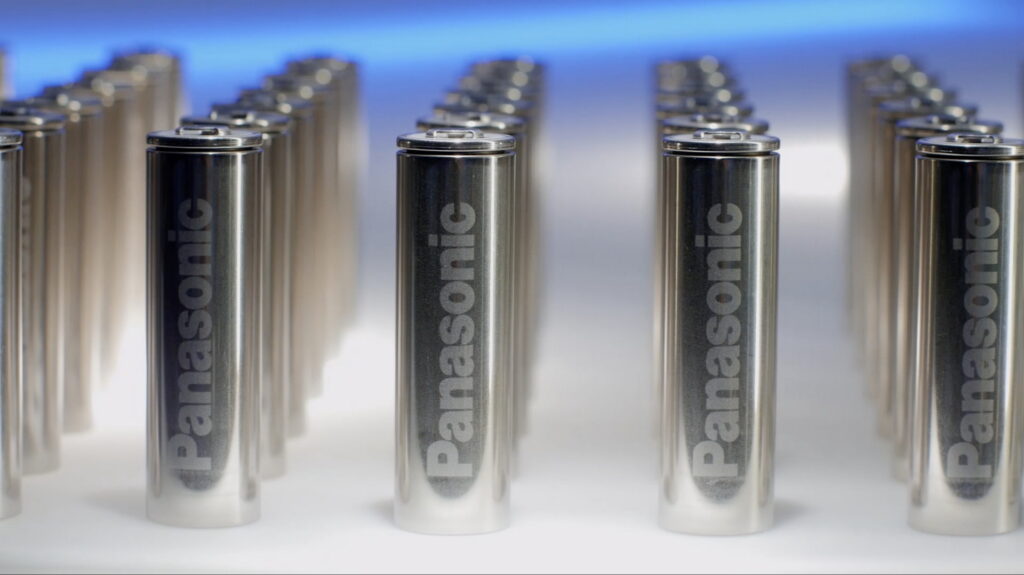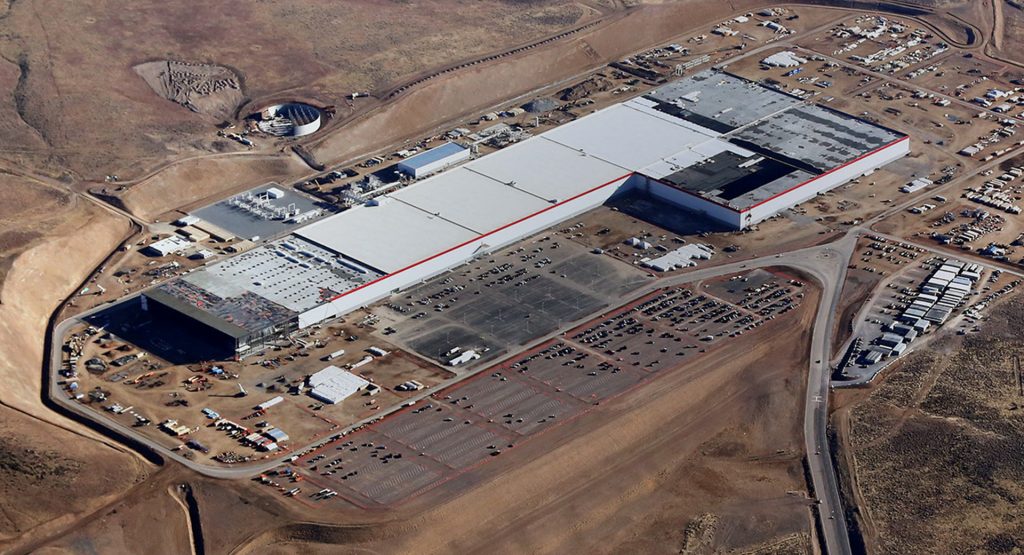- Panasonic will remove its 2030 target to achieve 4x capacity and 3x revenue goals.
- The company says that it still aims to hit targets, but a date to reach them is no longer important.
- The battery maker may divert North American supply to fulfill Japanese demand.
Panasonic has decided its course of quadrupling EV battery production in a short space of time was ill-advised. Little under a year ago, the Japanese battery manufacturer announced its intention to increase global production and procurement capacity from 50 GWh to 200 GWh by the end of the 2030 fiscal year.
The company, which supplies batteries to several automakers, including Tesla and Lucid, announced that it will put the brakes on its ambitious expansion plans. While it says it will still hit that 200 GWh capacity goal, the date has moved from 2030 to TBD. Panasonic has also revised down its aim to triple revenue in the same period.
Read: U.S. EV Sales Up 3.8% And Tesla Down 12% In March
The reassessment by the company’s executives has been triggered by the prevalent slow-down seen across the sales of EVs in North America. While a record number of EVs are being registered on American roads, growth has begun to taper off, with multiple studies still suggesting that a lack of charging infrastructure and high purchase costs weigh on the minds of concerned buyers.
“Looking at the current market, we decided that rather than be fixated on the [target] number, it’s more important to aim for a decent profit and a certain amount of market share,” says Panasonic CEO Kazuo Tadanobu, quoted by Nikkei Asia.

Panasonic has invested in two U.S.-based factories in partnership with Tesla, with one in Nevada and another under construction in Kansas. However, it missed an announcement that was due to take place in March. The plan was to reveal details on a third North American plant. However, Tadanobu told reporters that he had no further information to share on that front, but that information had been evaluated to make a “speedy decision” if the need arises.
While North American BEV demand slows, Panasonic sees potential in the Japanese market. The company is already in talks with compatriots Subaru and Mazda over the supply of cylindrical lithium-ion batteries. The battery maker may divert some of its domestic production capacity, which had been earmarked for North American customers, to instead make batteries for Japanese EVs.





